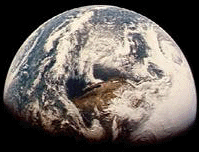

Generate awarenes of and interest in energy issues and explain the environmental consequences of energy production/consumption (conversion) through rudimentary scientific literacy for non-technical students.
1) Short Essays: Students will write a three-page essay (double spaced) to review and reflect on what they have learned in each section of the course. A total of five essays are scheduled for the semester. Each essay should include an introduction, a main body of information and discussion, and conclusions. Literature references with proper citations will be included in every essay.
2) Team Projects: Teams of four or five students will research an assigned topic on energy-environment connections and present their findings in a scientific poster or on a web page prepared by the team. Tutoring on web page design and production will be available. Team work is the most important component of this assignment. Team members will take turns to lead the discussion in group meetings to work on a preliminary plan, identifying resources, sharing work, compiling the information, designing, and preparing the poster (or the web page). The posters or the web pages will consist of the following sections:
Section 1: Fundamentals
January 13: Definitions: Energy, Work, Heat, Radiation; Power
January 15: Types of Energy and Energy Conversion
January 18: Library Resources Workshop
by Linda Musser, Head Librarian, EMS Library - The workshop will
be held in C401 Pattee Library.
Library Assignment
January 20: Presentation on Writing Short Essays
January 22: Presentation on Web Page Design and Production
January 25: Laws of Energy Conversion
1
Submit the Library Assignment
Assign Team Projects
January 27: Laws of Energy Conversion 2
January 29: Conversion Efficiency
February 1: US and World Energy Supply
Short Essay I: Write a three-page
essay reflecting on and synthesizing what you have learned on energy fundamentals.
Due
on February 8.
Section 2: Fossil Fuels
February 3: Coal: formation, classification, and properties
February 5: Coal Mining/Preparation
February 8: Coal Utilization
Submit Short Essay I
February 10: Petroleum: formation, classification, and properties
February 12: Petroleum Recovery
February 15: Petroleum Refining
February 17: Petroleum Utilization
Short Essay II: Write a three-page
essay on coal and petroleum. Due
on February 24.
February 19: Natural Gas: formation and properties
February 22: Natural Gas Utilization
February 24: Oils Shale and Tar Sands
Submit Short Essay II.
February 26: Environmental Effects of Fossil Fuel Production
Discharges from Coal Mines in Pennsylvania
March 1: Environmental Effects of Fossil Fuel Preparation and Refining
March 3: Environmental Effects of Fossil Fuel Transportation
March 5: Environmental Effects of Fossil Fuel Combustion 1
March 8 - March 12: Spring Break
March 15: Environmental Effects of Fossil Fuel Combustion 2
March 17: Clean Air Act
March 19: Enhanced Greenhouse Effect
and Global Climate Change
Short Essay III: Write a three-page
essay on environmental effects of fossil fuels. Due
on March 29.
March 22: Mid-Term Examination
Section 3: Nuclear Energy
March 24: Fundamentals of Nuclear Energy
March 26: Nuclear Fission Reactors
March 29: Nuclear Reactor Accidents
Submit Short Essay III.
March 31: Nuclear Fuel Cycle
April 2: Environmental Aspects of Nuclear Energy/Radioactive Waste Disposal 1
April 5: Environmental Aspects of Nuclear
Energy/Radioactive Waste Disposal 2
Short Essay IV: Write a three-page
essay on nuclear energy. Due on April 12
Section 4: Renewable/Non-depletable Energy Resources
April 7: Hydroelectricity
April 9: Wind Energy
April 12: Solar Energy 1
Submit Short Essay IV.
April 14: Solar Energy 2
April 16: Geothermal Energy
Short Essay V: Write a three-page
essay on non-depletable energy resources. Due on April 23
April 19: Enviromental Aspects of Non-depletable
Energy Resources
Section 5: Demand for Energy/Policy, Future Prospects
April 21: Transportation
April 23: Residential Comfort
Submit Short Essay V.
April 26: US Energy/Environment Policy
April 28: Future Prospects: Sustainable Development
April 30: Reflection on Team Projects and Wrap-up
May 4: Final Exam at
12:20 in 211E HH-DEV-E
Back to top
Expectations: Honesty, integrity, equity, timeliness, regular attendance, participation, and hard work - keys to professionalism and success.
No tolerance for freeloaders, cheating,
or plagiarism- not to defeat the whole purpose.
Back to top
Supplementary
books are on reserve in EMS Library - 105 Deike Building.
Back to top
Collaboration through Concept Maps
Energy Information Administration
FedWorld Information Network Home Page
Made with Netscape Composer